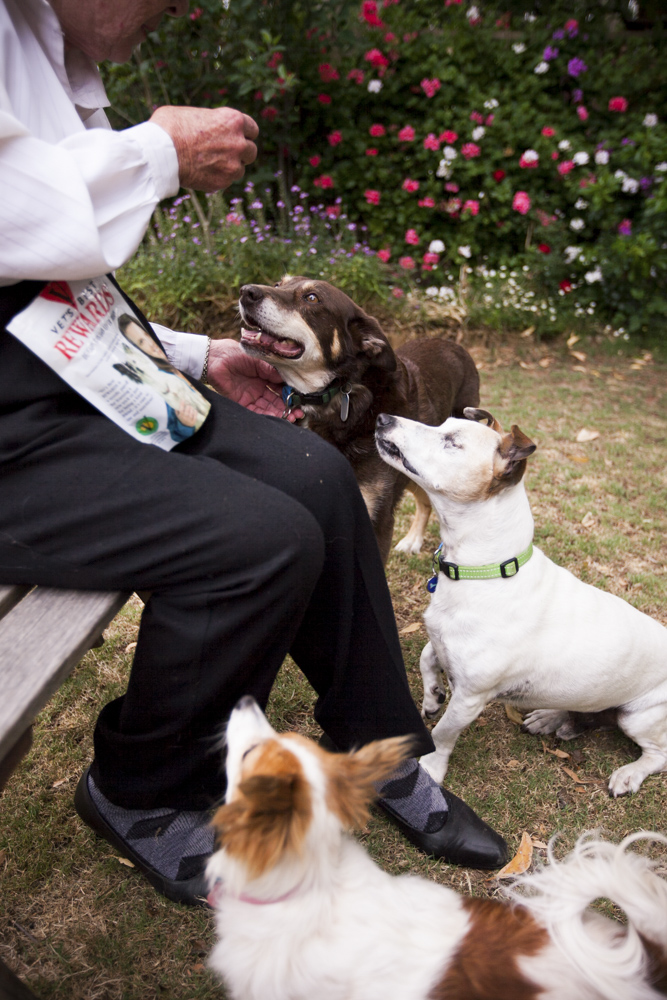South Australia’s Labor Government supports a bill that would allow tenants to have pets in their rental properties.
We’re a big step closer to tenants being allowed to have pets in rentals after the recent announcement by the Premier, Peter Malinauskas.
South Australia’s Labor Government is introducing and supporting a bill that will put an end to renters being refused tenancies simply because they have a pet. New rental reforms will mean tenants cannot have their request to keep a pet unreasonably refused, provided the tenant agrees to comply with any reasonable conditions of the landlord. Reasonable conditions include having carpets professionally cleaned at the end of the tenancy if a pet lives within the home, or keeping a pet outside the property if the animal is a type of pet not usually kept inside.
Peter Malinauskas speaking at our Lonsdale Shelter on Sunday 18 June said “For many of us, our pets are family and it is heartbreaking that some South Australians have been in a position where they have had to choose between having a roof over their head and giving up a beloved pet. That’s why our Government is acting decisively to make housing more accessible for all South Australians including those with pets.”
RSPCA SA fully supports this bill as in the last three years, the number of animals surrendered to us by their owners unable to find pet-friendly housing has tripled. What’s worse? Can you imagine giving up a beloved member of your family? Some renters who cannot bear to part with their pets, are risking their own safety to live in cars or tents with their animals. Without change, these shocking statistics will continue to rise.

Currently in South Australia, there’s nothing to prevent a landlord refusing a tenant simply because they have a pet and it’s standard practice for rental properties to have a ‘no pets’ policy. Finding a rental as a pet owner has always been difficult. And these last years, as more people compete for rentals, people are having to make a heart-breaking decision to give up their pets to be considered for a tenancy.
Andrea Michaels, Minister for Consumer and Business affairs, added “We know how difficult the rental market is for people right now with a record low vacancy rate in South Australia and even less of those homes being available to people with pets. The current laws mean vulnerable people are faced with the devastating options of homelessness, remaining in homes where domestic violence is present or sleeping in their cars unless they surrender their pets.”
South Australia is behind other states in rental reform with Victoria, Queensland, the ACT and the Northern Territory already having introduced law reform to stop blanket ‘no pets’ policies. Victoria’s 2020 reforms are showing to have a positive effect with a sharp drop in animals being surrendered due to rental stress.
If this bill is passed renters will no longer have to choose between keeping their family pet or a roof over their heads.
But, we still need your help. Email your Member of Parliament using this simple form, or click ‘join the call for change’ below.
South Australia lags behind other states with more pet friendly rental laws
As our reliance on pets for mental health and companionship has grown in Australia, so too has the need for pet friendly rentals; but residential tenancy laws have not kept up in SA in the way they have in other states. Victoria (VIC), Queensland (QLD), the Northern Territory (NT) and the Australian Capital Territory (ACT) have amended their rental regulation to help more pet owning renters find a home. QLD will soon follow, with new laws to take effect from October 2022. In these states, renters must still seek permission from the landlord to have a pet and remain liable if the pet causes damage – but blanket ‘no pets’ clauses are prohibited. Landlords can still refuse to allow a pet if they have a substantial reason approved by a Tribunal (e.g. if the property lacks suitable space or fencing or if keeping the animal does not comply with Council requirements, or if the animal itself presents a public safety risk).
NSW has implemented more limited reform by no longer allowing blanket pet bans, but only for the owners of strata title properties, where the owner must still abide by conditions for keeping pets that are set by their Owner corporation. In contrast, and despite one third of all South Australians being renters, a 2021 Bill to amend SA’s Residential Tenancies Act failed to win majority support in parliament, leaving SA landlords with the ability to use blanket ‘no pets’ clauses.

Reform is needed in South Australia
Long term changes like increasing the volume of available rentals and designing rentals to be more pet friendly are important, but they will not occur quickly. Regulatory reform is needed to stop blanket ‘no pets’ policies. This reform won’t remove landlords’ ability to discriminate against pet owners entirely, since while pet owners are asking permission to keep their pets, they are still competing with non-pet owners, but it will help.
In 2021, a Bill (Residential Tenancies, Renting with Pets, Amendment Bill 2019) attempted to change the default in rental agreements from ‘no pets’ to ‘pets allowed’, unless the landlord had a good reason to refuse them, but this Bill failed. Meanwhile, as the rental market has tightened through 2021-2022, some pet owners have resorted to living with their animals in cars, tents and sheds, while others – in desperation – have tearfully surrendered their animals to shelters.
Models for reform
Even in the Australian states with pet friendly rental reform, the ability of pet owners to secure a rental is hindered by the requirement to disclose their pet when applying. This disclosure can be used to discriminate against companion animal owners. It is hard to see how this problem can be fixed, given that it would be difficult to prove that this was the reason an application was rejected.
RSPCA SA believes landlords’ decisions about whether to accept a renter with a pet should centre on whether the rental property is suitable for the animal. Since we cannot expect all rental providers, renters and rental tribunals to have the expertise to make this decision, there is a need for animal welfare guidelines to be developed (by an expert body) that detail appropriate living conditions for different types of pets.
These guidelines could be used by rental providers, tribunals, renters and property owners more broadly, and could detail the appropriate size, space, security, exercise needs and ideal proximity to neighbours for different types of animals. Having clear, practical guidelines would also assist existing pet owners to make better decisions about the housing situation that will suit their pets. Aside from the welfare benefits for the animal, this approach would also minimise the risk of property damage.
The benefits for landlords who make their rentals pet friendly include: increased rental applications; lower (rental) advertising costs, less risk of vacancy and the likelihood that renters enjoying the benefits of their pets will commit to longer tenancies.




